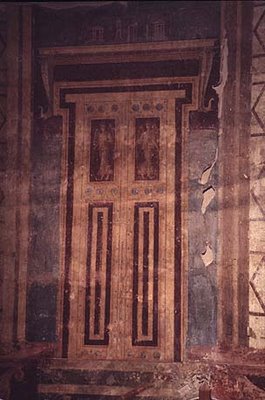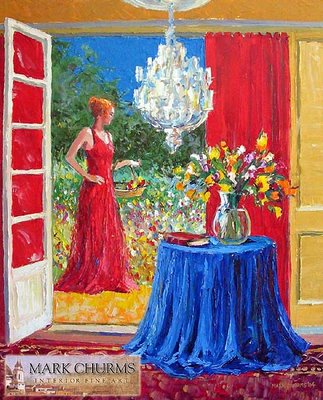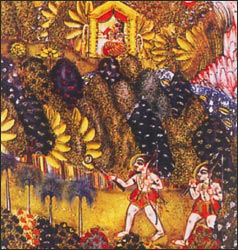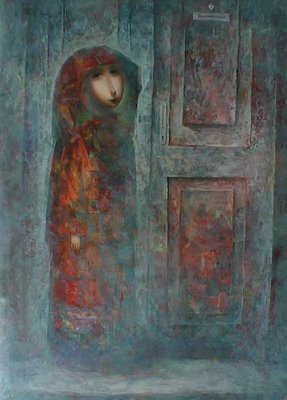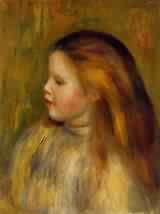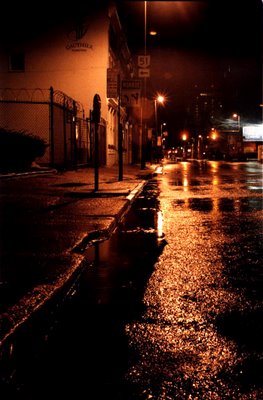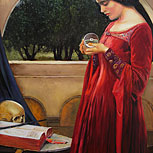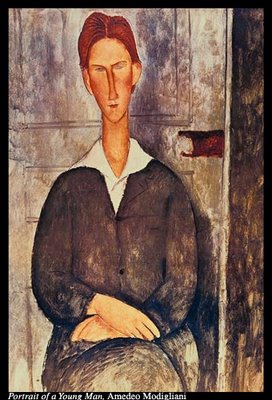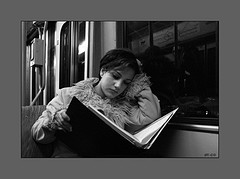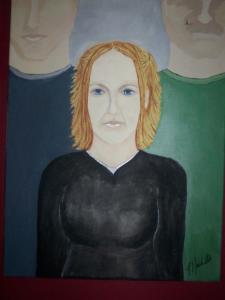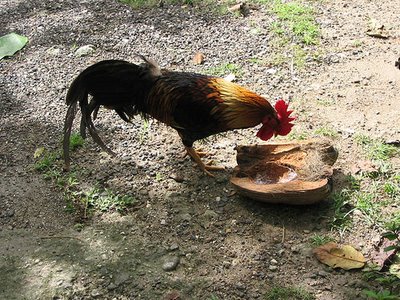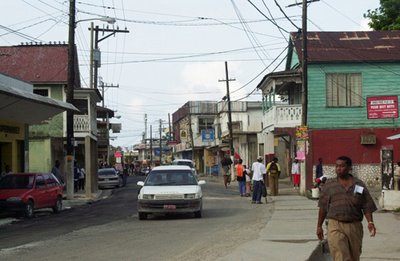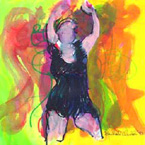 Marti Zuckrowv, of Oakland, California, begins a monthly column today.
Marti Zuckrowv, of Oakland, California, begins a monthly column today.My mother hid chocolate bars in her closet. Not the
small bars, but those big, family size Hershey bars.
How did I know this? I was a snooper. Like most kids,
I longed to discover the secrets of who she really
was, and therefore, who I was. And another thing:
once I got my nerve up and climbed into the closet, I
felt protected from the rest of the world, as if the
billowy fabrics brushing against me were shields of
armor. I'd be safe.
My father shared that closet with my mother, but his
side held little interest for me. Boring gray suits,
a blue one for special occasions and the dozen or so
long and short sleeve shirts my mother ironed for him
on Saturdays when she returned from the laundromat.

I ironed his handkerchiefs, a chore I came to enjoy for the meditative quality of sliding a steaming iron
up and down the ironing board. Magically, the wrinkled
white cotton square stretched out and lay flat and
flawless, ready to be made into perfect quarters. An
imaginative child, I'd pretend I was this flimsy piece
of cotton. I'd let my body go limp; my arms sagging
like elephant trunks, my legs as wiggly as overcooked
spaghetti. I'd roll up sequentially, vertebrae by
vertebrae, my spine transforming from a horseshoe
shape into a young oak tree.
I'd do it again, and again, often adding choreography that included
creating grand arcs with my arm, the iron heavy in my
hand, the stream from the iron hissing in musical
accompaniment. Little did I know I was embarking on my
lifetime passion as a dancer. Needless to say, my
ironing chores took forever.
It was my mother's side of the closet, though, that intrigued me.
I'd sneak in to the closet when I came home from
school. Both my parents worked in Manhattan and didn't
get off until five so I had ample time to do my detective
work.
I'd slide the thin wooden sliding doors open, forever
intrigued by the novelty of sliding doors (all the
other closets had doorknobs with key holes beneath
them) I'd peek around the room, (just in case a
burglar or a murderer happened to be there) before
stepping in and leaning against the rack of her
clothes.
I'd press my face into her quilted pink
bathrobe. I loved the cool silky feel of the fabric
next to my skin and the faint scent of her Jean Nate
spray that lingered there. Like a caress, the soft
fabric comforted me when the waves of guilt at being a
snoop threatened to drown me. I'd imagine I was
Rapunzel letting down my long golden hair. My handsome
prince would arrive and carry me off to far away
places where we would live happily ever after.
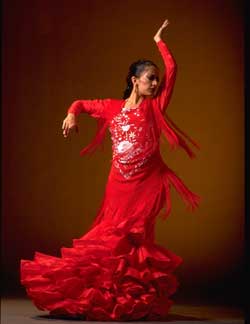
I'd be safe from that bad man, Mc Carthy, who my parents and
their friends talked about when they thought I wasn't
listening. I'd fold in like a pretzel, hug myself
greedily, then extend my arms and legs to become as
large as possible in such a confined space. I'd feel
the transformation of my body contracting, expanding,
contracting expanding. I'd be free of this world and
enter the world of movement.
I'd found home. I'd poke around my mother's handful
of fancy dresses, her royal blue taffeta box like frock,
her wedding and bar mitzvah outfit, her rose colored
velvet dress with it's thick soft sash that tied
in the back and draped down over her broad hips,
a lime green silky shirtwaist with tiny pearl buttons, and my least
favorite, the black long-sleeved narrow dress she wore
to funerals.
That dress, when I spotted its darkness, got my heart racing.
The Rosenbergs. Maybe my parents were next. I'd will myself
to breathe, make myself as small as possible and scrunch down to
investigate the few boxes of high heeled shoes lined
up on the bottom of the closet. (That's where I'd find
the chocolate bars, stashed away in an otherwise empty
box.) I'd step into my favorite pair of black suede
pumps, secure them to my feet with the thick ankle
strap that wrapped around, back to front, and imagine
myself a flamenco dancer.

I'd uncoil my body, stand up and walk out of the closet.
I'd pose before the mirror over the dresser.
Taratata,
taratata, I'd suck in my belly, throw out my ribs,
arch my back, position my arms to frame my face and
snap my fingers.
Taratata, taratata, I'd whirl
and twirl, unsteady on the high-heeled shoes but
committed to my dance. I'd see the girl in the mirror
and know that was me, a dancer.
Writer Marty Zuckrowvia is a lifelong dancer and performance artist who teaches movement classes to people with disabilities.




